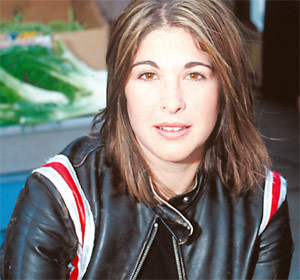
The Chronicle Herald (Nova Scotia) | 28 June 2009
By JOAN BAXTER
WHILE ordinary Canadians watch their pensions and jobs evaporate in the global economic mess, those who brought us the crisis have found a new profit-making toy. It’s land-grabbing, 21st-century style. Around the world, private investors and multinational mining, automotive, agrochemical and seed corporations are scouting out and taking over vast tracts of farmland, many in African countries that are still struggling to feed themselves.
Arable land has become the newest commodity for the speculators that author Naomi Klein so aptly describes as "disaster capitalists" because they profit from disasters, often ones they help create.
These financial wheeler-dealers created the economic meltdown by dealing bad debts at the expense of ordinary people — productive and hard-working citizens who pay their taxes every year, and don’t know much about tax havens, numbered bank accounts or any of the places really rich people stash their wealth. The land these "investors" are now grabbing for offshore farms is their new safe, and profitable, haven.
It’s a giant board game, says GRAIN, an international non-governmental organization that promotes sustainable management and use of agricultural biodiversity. GRAIN and other groups defending food sovereignty and people’s access to land around the world are deeply concerned about the global rush by investment houses, private equity funds, hedge funds and the like to take over the very land that sustains us.
The investment gurus point out to their institutional investors that the prices of farmland are sure to rise in coming years in the face of a global food crisis and the rush to turn fertile food-crop land into plantations for agrofuels to turn still more profits. Theirs is a self-fulfilling prophecy because by speculating on land, they are already driving up the prices.
Reza Vishaki, head of alternatives at the fund manager Insight Investment, says, "The single best recession hedge of the next 10 or 15 years is farmland." He says demand is going up strongly on a global basis.
Canada is not being spared. Institutional investors are extremely interested in Canadian land, which is far cheaper than in much of the world.
Large-scale foreign land acquisition, mostly forestry land, is not new in Nova Scotia. But without any legislation to limit how much land foreign investors can own or to require disclosure of who they are, our province is vulnerable to this global land rush. An unnamed investor recently acquired almost four per cent of Nova Scotia’s land mass; this land is managed for the unknown client by a U.S.-based management company. We as Nova Scotians and our government have no right to know who owns this chunk of our province.
In the west of Canada, funds such as Agcapita Farmland Investment Partnership are buying Prairie farmland. Agcapita’s website says institutional investors "have long recognized farmland as a dynamic asset class with many attractive investment characteristics. Farmland has attracted billions in private investments from institutional investors globally." Agcapita boasts that it has Canada’s only RRSP and tax-free savings account eligible farmland investment funds.
Is this where ordinary Canadians want their precious savings invested, in corporate-owned agribusinesses that turn their land into factory farms, at the mercy of super-wealthy and invisible investors? Agcapita says it buys Canadian farmland and then leases it "to a portfolio of qualified operators for cash rents and on a selective basis on a profit/crop sharing basis."
Crop-sharing? Isn’t crop-sharing something that we put a welcome end to in the past few centuries? In medieval Europe, kings and church leaders owned all the land. The majority, the poor peasants and serfs, worked the land for the rich and powerful. They were share-croppers, usually deeply indebted, and lived in veritable bondage. This was distinctly feudal and anti-democratic. This is the stuff of the Dark Ages.
Agcapita’s website says its partner Stephen Johnson is approached all the time by foreign interests seeking Canadian agricultural land. The only hitch for these neo-land barons is foreign ownership restrictions in some provinces. But according to the website, that doesn’t mean they’re out of the picture. "Foreigners might be able to lease farms or use loans or local partnerships to gain interests in the land. It’s hard to imagine that Canada will not play a role as the global farmland rush gains momentum … it’s just a matter of time."
The time, it seems to me, is ripe for people in Canada (and around the world) to call on their governments to prevent such land-grabbing, which has everything to do with wild profiteering for a few, and nothing to do with sustainable, autonomous, ecologically and people-friendly land use and farming that is in the best interest of the rest of us.
Joan Baxter is a Nova Scotian journalist and award-winning author.










